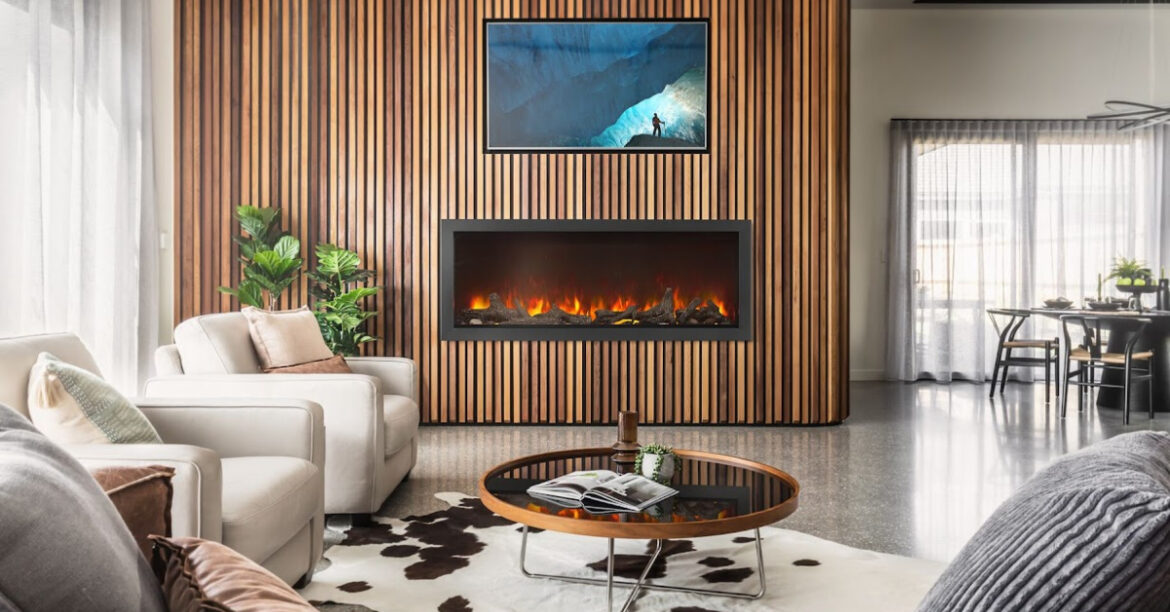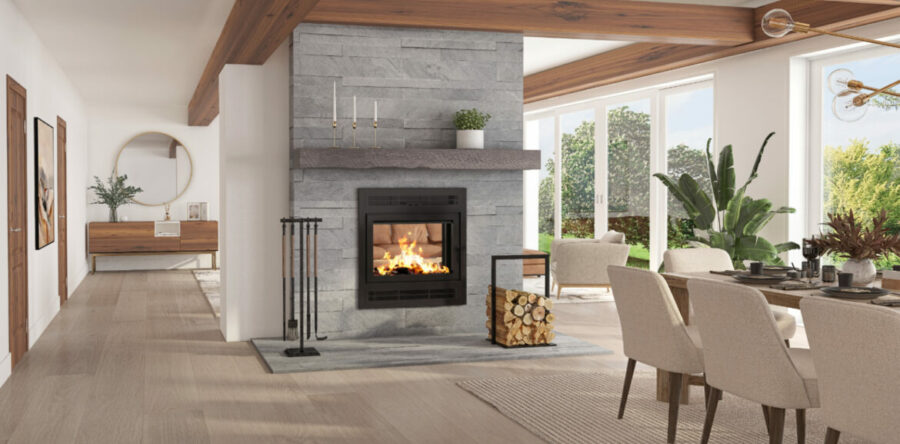Who doesn’t like to sit by the fire, wrapped up in a warm blanket, drinking hot cocoa, with the smell of burning wood permeating the house? It sounds cozy, does it not? Cozy it might be, but can fireplace smoke be harmful for you and your family?
IF YOU CAN SMELL SMOKE, YOU’RE BREATHING IT
Let’s look at health issues commonly associated with burning wood in a fireplace or stove. Inhaling smoke from a wood fire is not good. Over time, it can cause lung disease and even cancer. In the short term, it can cause headaches and irritations to your eyes, sinuses, lungs and throat. It can mean reduced lung function and more severe symptoms of existing lung diseases. Inhaling smoke can also increase the risk of a heart attack.
Wood smoke contains very small particulate matter (PM2.5), which are tiny particles contained in smog. These fine particles can be in a solid or liquid form and their minuscule size makes it easy for them to travel deep into your lungs when you breathe them. They irritate the respiratory tract, can aggravate cardiovascular diseases and can eventually, even cause death.
Other pollutants contained in wood smoke are volatile organic compounds (VOCs). Also present in smog, they are odorless, tasteless and colorless compounds. They too irritate the respiratory tract and can cause breathing difficulties. Some VOCs can also cause cancer.
Carbon monoxide (CO) is a dangerous pollutant present in wood smoke. Unlike smoke though, you cannot smell carbon monoxide. CO is odorless, colorless and tasteless. It’s poisonous and deadly if inhaled in larger quantities. It also causes nausea, headaches and dizziness and can also aggravate the health condition of people with cardiac issues.
Polycyclic aromatic hydrocarbons (PAHs) are another health hazardous compound found in wood smoke. Some are suspected of causing cancer. Other toxic components like chlorinated dioxins and nitrogen oxides are also found in smoke and can contribute to various lung problems.
CERTAIN GROUPS ARE AT HIGHER RISK
Children are more at risk of developing health issues from wood smoke than adults because their respiratory systems are still developing. They also inhale more air since they are generally more active than adults. Babies and pregnant women are also at higher risk.
Anybody with lung or heart disease, such as asthma, emphysema or angina, are particularly vulnerable to fireplace smoke and will see their health affected quicker than healthier people.
Older adults are at a higher risk for health issues related to the smoke from a wood fire.
It’s also worth noting that winter weather conditions can restrict the dispersion of air pollutants of wood smoke. Depending on the location of the house and chimney, for example low-lying areas or valleys, smoke can be trapped at ground level for a period of time and increase a person’s exposure.
WHAT CAN YOU DO?
Make sure that any wood-burning appliance that you own or plan to buy complies with the latest standards set by the United States Environmental Protection Agency (EPA) and the Canadian Standards Association (CSA). New standards, put in place in 2020, means wood-burning fireplaces, stoves and inserts release nearly 80% less smoke and burn 30% – 40% less wood than older, non-certified models. Reburn systems designed in new equipment actually burn the smoke and other by-products of combustion very thoroughly. You’ll see very little, if any smoke coming out of the chimney!
When looking for a new stove or fireplace, your WE LOVE FIRE® expert offers many extremely efficient models. All of these will significantly reduce the possibility of health issues of burning wood.
If you or a loved one has severe health problems, consider a fuel other than wood. There are some truly impressive electric and gas models available.

Electric Fireplace Astound by Napoleon
USE CORRECT TECHNIQUES
This starts by using nothing but properly seasoned wood.
Other “correct techniques” mean:
- Have a gasketed, tight sealing door installed on your fireplace, stove or insert instead of a screen.
- Be sure that anyone who operates the wood-burning equipment is familiar with the air control and the reburn system of the appliance.
Be sure you have a certified professional inspect and clean your chimney at least once every year.
- Correct any deficiencies that are pointed out with your appliance or chimney.
- Replace older gear with new, 2020 EPA certified equipment.
- For safety’s sake, be sure smoke alarms and CO detectors are in working order.
SAFETY AND HEALTH
Obviously, the safety and well-being of your family are priority one. You and your loved ones will breathe easier and sleep better knowing that your nearby WE LOVE FIRE® expert has been in the business of protecting lives and property for many years. Count on us to provide services and products that do exactly that.










2 Responses